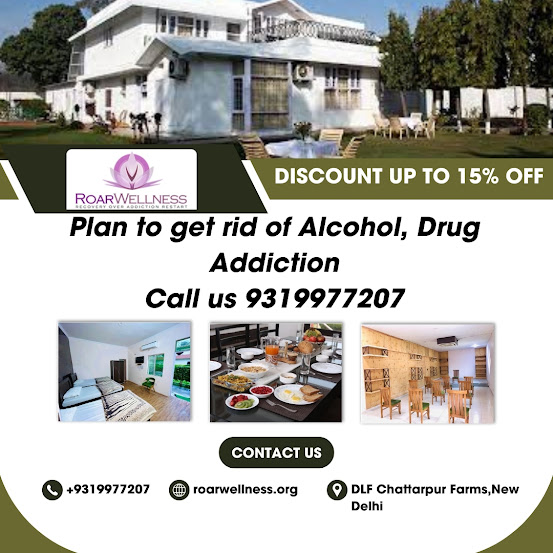Opioid Addiction Treatment in Punjab
The opioid epidemic has cast a shadow over regions worldwide, and Punjab, India, is no exception to its grip. Opioid addiction in Punjab has reached alarming proportions, posing a significant public health challenge. Addressing this crisis requires a multifaceted approach, combining medical, psychological, and social interventions. In this article, we delve into the intricacies of opioid addiction treatment in Punjab, exploring the challenges, strategies, and the road to recovery.
The Opioid Crisis in Punjab:
Punjab has been grappling with a surge in opioid addiction, primarily fueled by the widespread availability of prescription painkillers and illicit substances like heroin. The socio-economic landscape, coupled with factors such as unemployment and easy accessibility to drugs, has contributed to the escalating crisis.
Challenges in Opioid Addiction Treatment:
Stigma and Social Barriers:
Overcoming the stigma associated with addiction remains a significant obstacle in Punjab. Many individuals fear seeking help due to societal judgment, hindering their access to treatment.
Limited Treatment Facilities:
While efforts have been made to establish treatment centers, there remains a shortage of facilities equipped to handle the increasing number of individuals seeking help. This scarcity often results in delayed or inadequate care.
Dual Diagnosis:
Opioid addiction is frequently intertwined with mental health issues. Addressing co-occurring disorders requires an integrated approach, posing a challenge for a healthcare system that may be ill-equipped to handle dual diagnoses.
Treatment Approaches in Punjab:
Medication-Assisted Treatment (MAT):
MAT involves the use of medications such as methadone, buprenorphine, or naltrexone to manage cravings and withdrawal symptoms. This approach is gaining acceptance in Punjab as a cornerstone of opioid addiction treatment.
Counseling and Therapy:
Behavioral therapies, including cognitive-behavioral therapy (CBT) and motivational interviewing, play a crucial role in addressing the psychological aspects of addiction. Counseling helps individuals identify and modify destructive behaviors, fostering a sustainable recovery.
Community-Based Programs:
Engaging the community is vital for combating opioid addiction. Community outreach programs aim to raise awareness, reduce stigma, and provide support for individuals and families affected by addiction.
Rehabilitation Centers:
Residential rehabilitation centers offer intensive treatment in a structured environment. These facilities provide a supportive community, counseling, and skill-building activities to aid in the recovery process.
Government Initiatives:
The government of Punjab has recognized the severity of the opioid crisis and implemented several initiatives to combat it. These include increased funding for treatment facilities, awareness campaigns, and training programs for healthcare professionals.
Conclusion:
Opioid addiction treatment in Punjab is a complex and evolving landscape. While progress is being made, numerous challenges persist. A holistic approach that addresses the medical, psychological, and societal dimensions of addiction is crucial. By fostering a compassionate and supportive environment, Punjab can pave the way for individuals to reclaim their lives from the clutches of opioid addiction. The journey ahead requires continued collaboration between the government, healthcare professionals, and the community to build a resilient and effective system of care.




Comments
Post a Comment